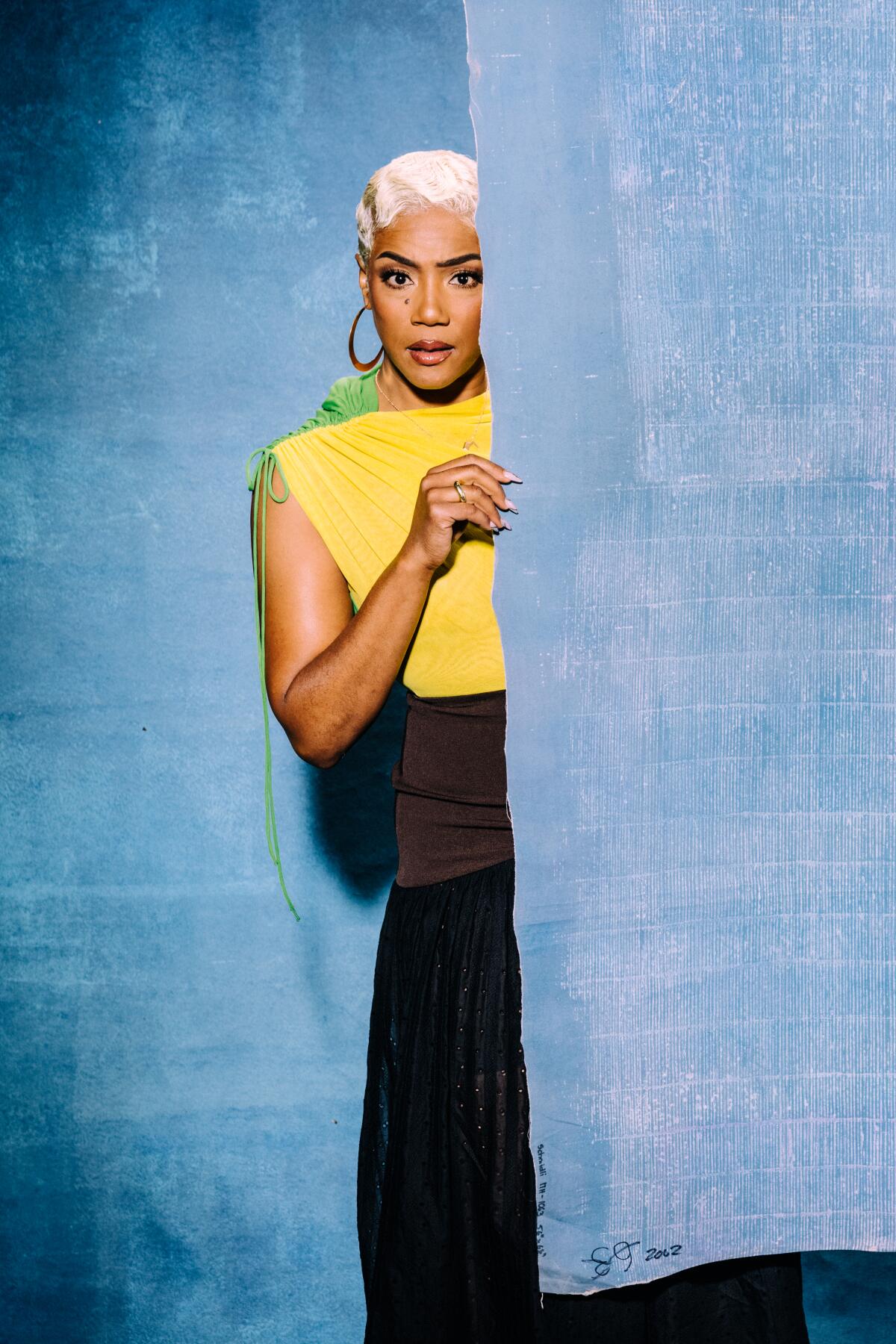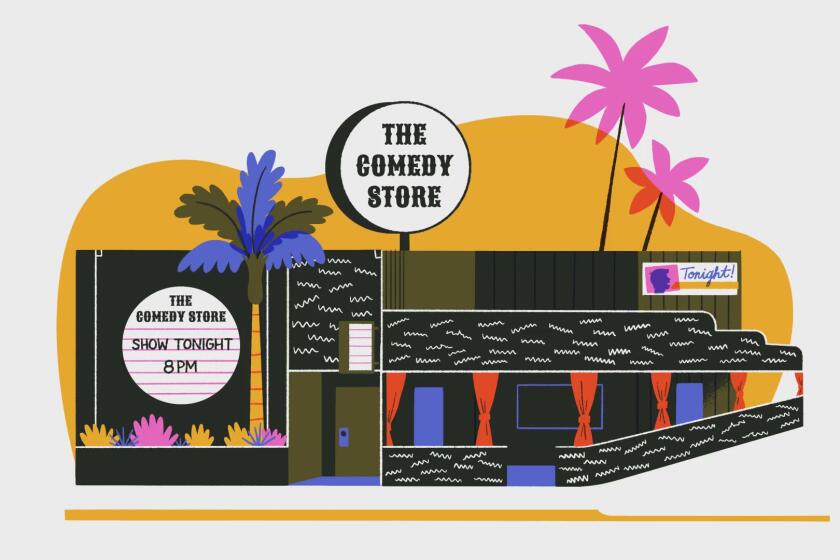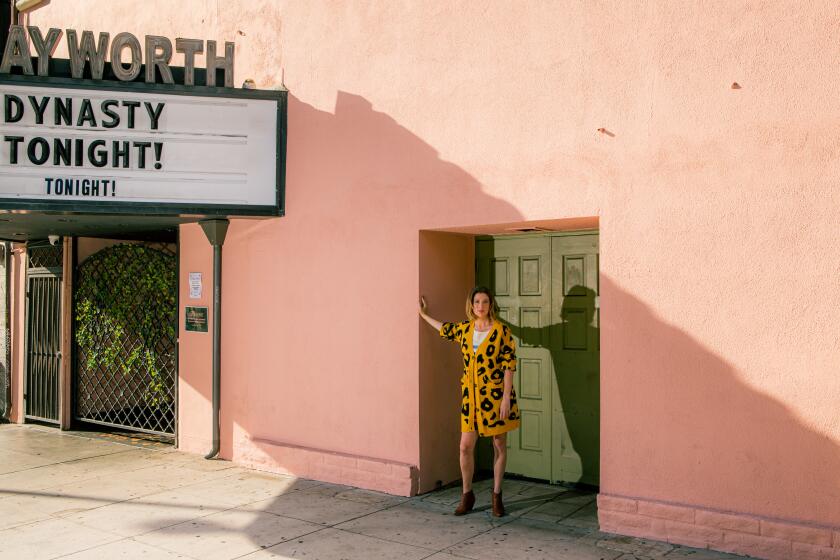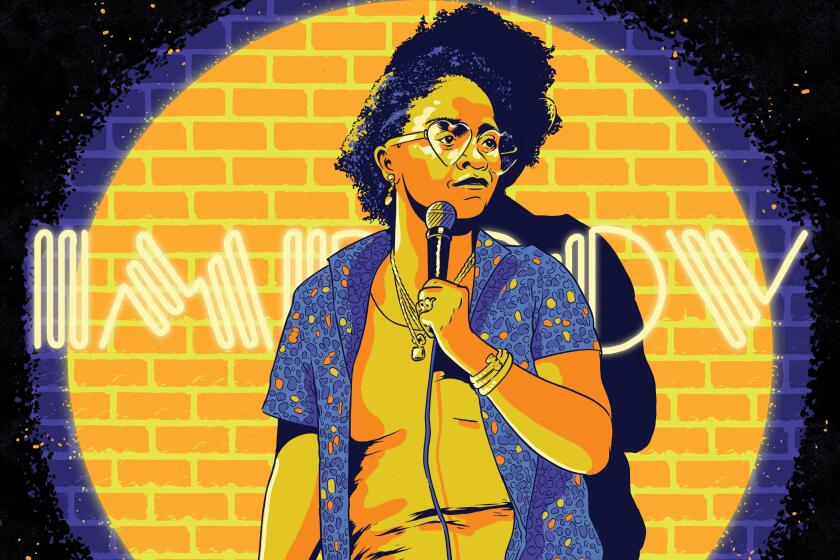Tiffany Haddish explains why stand-up comedy will always be the best art form

Editor’s note: What better way to open up a special issue about L.A.’s stand-up comedy scene than by talking to someone who’s lived every stage of it? In her own words, Tiffany Haddish tells us why, despite being a star on so many levels, she’ll always be a stand-up comedian first.
When I started my stand-up comedy as a teenager, I was getting moved around from different [foster] homes. I had just got placed with my granny and I was trying to find my voice in a world where I felt like I had no voice. My social worker gave me options to either go to psychiatric therapy or to the Laugh Factory comedy camp. At the comedy camp, I found a place where I had a voice. It was the first time where I was in an environment with men and I didn’t feel like I was going to be violated and I felt like I was heard and cared for.
Stand-up is a fraternity of sorts. Like any group of people, there’s ones who you can really depend on and trust and care about you and some who don’t give a damn and want to see your downfall. I think it’s that way in any group of people. From my experiences, I found my lifelong brothers and father figures in stand-up. Comedians are crazy and some of them are creepy and some of them are gross and some of them are super amazing guys. And I’ve been around all of them. I think the reason that I’ve stuck with stand-up through all my success, regardless of doing all these movies and TV, is because it’s where I feel happiest.
Cheer up at one of these spots for stand-up comedy in L.A.
I remember in my rise on the L.A. scene, they wouldn’t pay me to do comedy. I go to New York and I can make $1,000 for one show, but in L.A. I could do four shows, and I make $150. Promoters would say, “You’re in L.A., this is your chance to shine! Somebody might see you! This might change your whole life ... every show could be the show that takes up the door.”
Every show was not the show that kicked up in the door. But every show you get stronger and stronger as a comic.
I remember doing shows where there were two people sitting in the audience, or when I performed at a dive motorcycle bar and I almost got killed — and I didn’t even get paid.
There’s a lot of disappointment in comedy, which breeds a lot of depression. A lot of comedians give up and go do something else. There’s a lot who kill themselves, or use drugs to try to escape as opposed to saying, “What can I do to be better?” They might try everything to be the best they can be but the depression is so heavy that it can be really traumatic. I’ve personally seen it go from nobody wanting to work with me to everybody wanting to work with me.
10 women who book comedy shows across L.A. discuss how far the scene has come and where they see it evolving in the future.
I didn’t really start touring officially until I got on “The Carmichael Show” [in 2015]. Otherwise it was me and my agent calling comedy clubs, booking myself to do a spot here a spot there. Some nights I would get bumped, which was fine — because then I would just sit there and be a student.
I even did retirement home gigs. I did so many shows at geriatric, old folks’ homes. I think that if you can make a baby laugh and you can make an old person laugh, you’re funny.
At first I would try to keep my jokes clean and wholesome — but the crowd wasn’t having it. To have a lady wearing a diaper in her 80s booing me was one of the most humbling experiences in my life. But it made me stronger.
I started realizing just because they’re at a retirement center, they are still humans, they still have urges, they still watch the news, and maybe they have poor memory but they still want to have their souls tickled and they still want to be talked to like adults. So then I started hitting them with some of the dirty comedy and I became the queen. I started talking about love triangles and STDs.
Richard Pryor once told me, “People don’t come to comedy shows because they want to hear about your problems or religion or culture, or any of that. They’re not coming to be preached to, they’re coming to have fun. The key to great comedy is having fun, and it doesn’t matter what you’re talking about. You could get on stage and read the whole phone book if you’re having fun doing it, because that fun energy is contagious.”
Lately some people have asked me if I feel safe doing comedy anymore. “Do you think you can perform and not be under attack?” There’s always the possibility of being under attack. That is what it is like putting yourself out there. It’s all dangerous at the end of the day … and sometimes the messenger gets shot.
But I still think comedy is the most important art, it’s the one thing that can help people elevate their minds. Everything that I’ve ever remembered that I’ve been able to apply to my life, the person who taught me that thing made me laugh. And L.A.‘s got some really good laughs, you just gotta open your eyes and pay attention.
We need laughter now more than ever. Here’s an inside look at our thriving local stand-up scene.
More to Read
The biggest entertainment stories
Get our big stories about Hollywood, film, television, music, arts, culture and more right in your inbox as soon as they publish.
You may occasionally receive promotional content from the Los Angeles Times.













